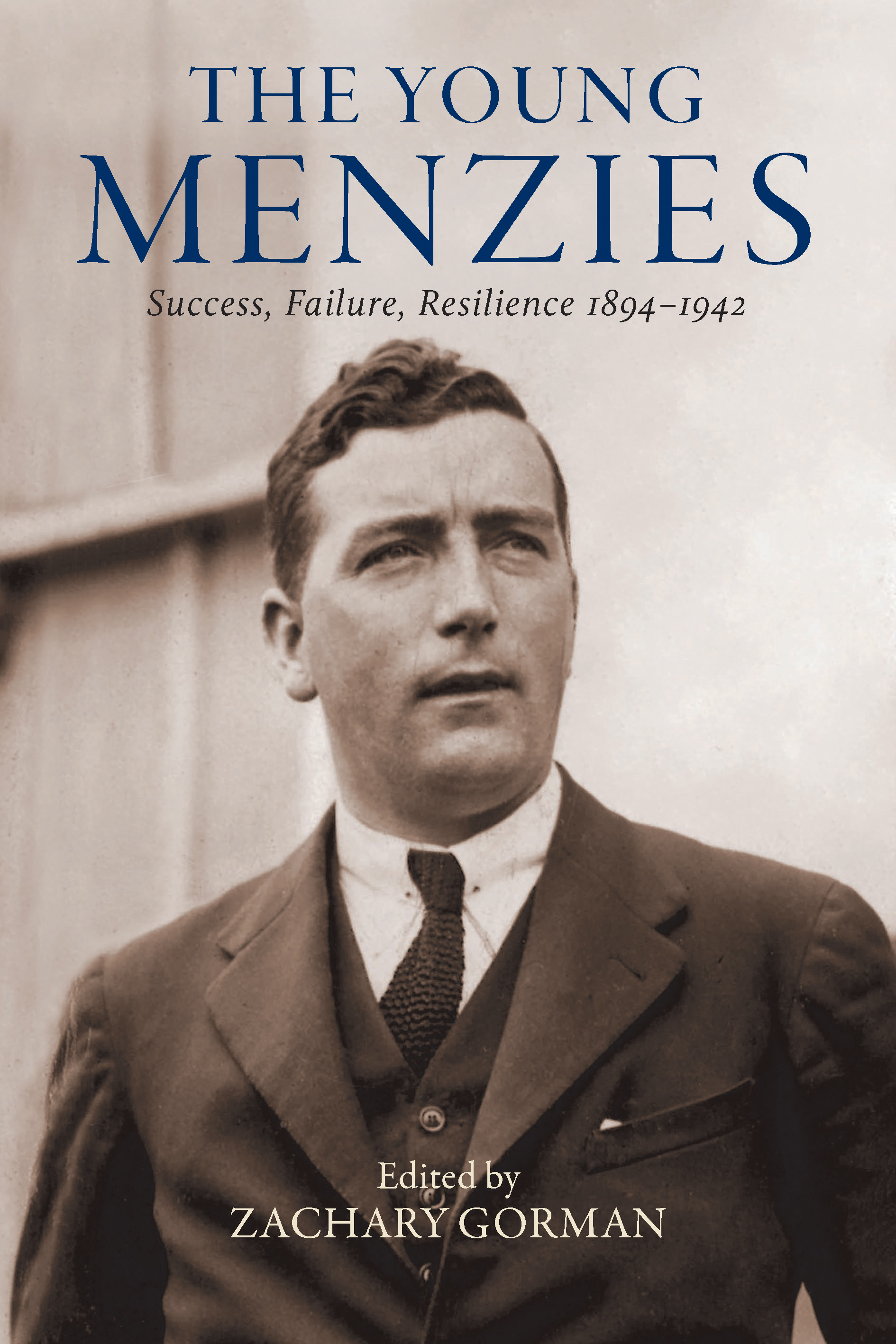The Young Menzies: Success, failure, resilience 1894–1942
Melbourne University Press, $39.99 hb, 224 pp
House and garden

Robert Menzies retired as prime minister more than fifty-three years ago and died in 1978, yet he remains not just a dominant figure in Australian political history but a strong influence on modern political affairs. As Zachary Gorman, editor of this latest book on Menzies, argues, ‘it has become almost a cliché to say that he built or at least shaped and moulded modern Australia’. He created the Liberal Party that has governed Australia for fifty of the past seventy-three years, and modern Liberal politicians still draw on Menzies’ ideals.
This book grew out a conference at the Robert Menzies Institute in 2021. Opened in 2021 at the University of Melbourne, the Institute commemorates the life and legacy of Australia’s longest-serving prime minister, so it might be expected that this book would provide a favourable view of Menzies. That is certainly the case; nonetheless, the chapters are by accomplished and distinguished scholars, and they all make persuasive cases.
Rather than a straight biography, the result is a series of think-pieces on various aspects of Menzies’ early life and career. The background and qualifications of the authors is key to understanding their approach and conclusions, and it is therefore disappointing that the book does not give us any information about them, though many readers will be familiar with them. Gorman, academic coordinator of the Menzies Institute, is the only one whose qualifications are indicated. The first chapter, a fine and perceptive general assessment of Menzies, is by David Kemp, but it would have been useful to be reminded that he is a former Liberal MP, the author of books on Liberal politics, and deputy chair of the Institute.
The description of Menzies’ school days is written by Troy Bramston, author of successful biographies of Hawke, Keating, and Menzies. Bramston argues that Menzies’ early years established his values, virtues, and vices. In a book that is largely free of contrary views, Bramston concludes that when Judith Brett claims that ‘Menzies wanted to kill his father and have sex with his mother’, her view ‘is utterly bonkers’.
Continue reading for only $10 per month. Subscribe and gain full access to Australian Book Review. Already a subscriber? Sign in. If you need assistance, feel free to contact us.












Comment (1)
Why is it, indeed, that matters of great importance to the electorate are of such low rank in the political life of the country?
Leave a comment
If you are an ABR subscriber, you will need to sign in to post a comment.
If you have forgotten your sign in details, or if you receive an error message when trying to submit your comment, please email your comment (and the name of the article to which it relates) to ABR Comments. We will review your comment and, subject to approval, we will post it under your name.
Please note that all comments must be approved by ABR and comply with our Terms & Conditions.